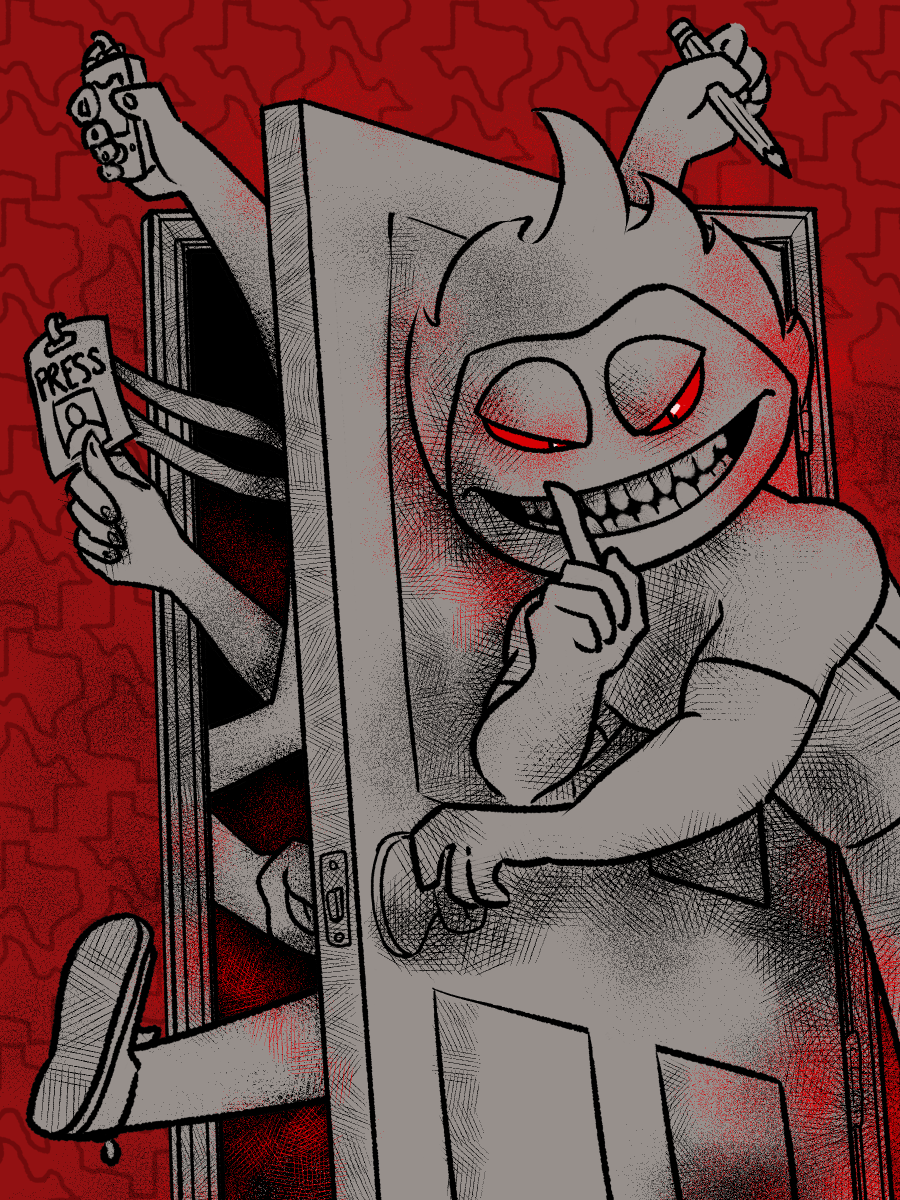I guess this is it.
Almost two decades of academia culminates as I am a couple semesters and a few more credits away from graduating from this fine institute of learnedness.
I have to admit that despite my initial reservations about this university, this school has grown on me.
Like an episode of “Extreme Makeover,” I’ve witnessed the visage of this campus transform from beldam to belle as it underwent the surgical precision of construction crews. And unlike that TV show, which stands as an exemplar for the moral bankruptcy of our society, this university’s disposition has blossomed in sync with its external radiance.
I almost feel bad that the first article I ever wrote for this paper was written in attempt to tear the school a new one, but really I only wrote it to inspire progress in the areas that I felt the university was lacking. Recently however, to my discredit, progress has been the only thing on the agenda of this campus as a record number of students have enrolled here, bringing with them a newfound verve that I had hoped this school would someday boast on its campus. I’m ingesting newsprint as we speak.
As I play that badgering Vitamin C song prematurely in my head, I can’t help but feel old and decrepit at the ripe age of 22 when I see the incoming freshmen adorned with their cute little “silly bandz” and the conviction that they’ll remain BFFs with their friends from high school.
The soon-to-be four years I’ve spent in higher education have taught me many valuable lessons — almost none of those were learned in class since I spent the majority of my time in class texting. I did, however, gain from attendance lessons that were more important than any lecture I could have taken notes for. Here are some of things I’ve learned over the years.
Time management and the importance of priorities: How does one manage to shuffle between the deluge of classes, projects and exams while still conserving time for friends and the recurrent episodes of substance abuse? What happens when procrastination rears its alluring head in the form of a new season of “Entourage”? All these questions and more will be answered when you enroll at your college institution of choice. There comes a time when you’ll have to make judgment calls like deciding whether you should attend your next class or cram for an impending test. These types of decisions that test your instincts will become second nature to the veteran student as he or she learns to juggle an array of flaming obligations while traversing the tightrope of sanity.
Meeting a deadline in lieu of sleep: An average person needs roughly eight hours of sleep in order to be fully rested. Studies made up by my gut instinct show that the average college student gets a significantly less amount of sleep. There have been periods in my college undertaking when I’ve gotten less than a day’s recommended amount of rest for an entire week because I had to meet multiple deadlines for school and work. Fortunately, B12 and caffeine were concocted to allot more hours in the day and instigate future cardiac arrests. The war against sleep deprivation rages on and you will find that your head weighs more than your entire body during classroom PowerPoint slides. And as much as I hate to admit it, the staying-awake muscles you develop in college will be called upon for the rest of your life.
Communicating with superiors when things go wrong: People make mistakes — that much is inevitable. Irrespective of what you may think, professors are also human and understand that to err is to be a student. That being said, communication with professors will make the difference between a failing grade or an extension to the due date of a paper. In the same way you want to be on good terms with your managers and supervisors, you want to be on the same page with your professors. That page is called “brown nosing.”
Teamwork in the academically honest sense of the term: As important as it is to communicate with your professors, you also want to build rapport with your fellow classmates. Study groups and the sharing of notes are the only reason I’ve avoided academic probation. When you go to class, look at the person next to you. They’re in the same boat as you — help each other out. A tip for the guys: Find a female study buddy. They make more informative and colorful study aids than we could ever hope to.
Hard work pays off: Much like the workforce, the person doing the best gets paid more and this can’t be any more evident than the process of scholarships in college. The better your grade the more likely you’ll receive more tuition assistance from the powers that be. The student who puts in the most work in class will also tend to get the most leeway and recognition from professors. That’s just the way it works — don’t hate the player, hate the game. And it is a game; don’t ever forget that because there’s no point in getting bent out of shape for something that’s really just a simulation for the real world.
If you’ve noticed, these tenets that I’ve mentioned can all be applied in the job context.
When you commence your college career, you initially learn from the courses you take. As you venture closer and closer to the day caps and gowns become fashionable, you start to learn about your own education in a more epistemological perspective.
Ultimately, college for me was one big lesson for the life I would have after college as a productive member of society. I might have been studying English, history and science while failing math but in actuality I was learning life skills that would stay with me long after I depart this establishment.
Anyone can pick up a book and begin to learn facts by rote. Going to college, though, prepares you for the real world, and that piece of paper you’re finally awarded serves as a seal of approval, ensuring companies that you’re cut out for employment because you’ve proved throughout the 18 years of your education that you can put in the time and effort despite the stress you encounter.








